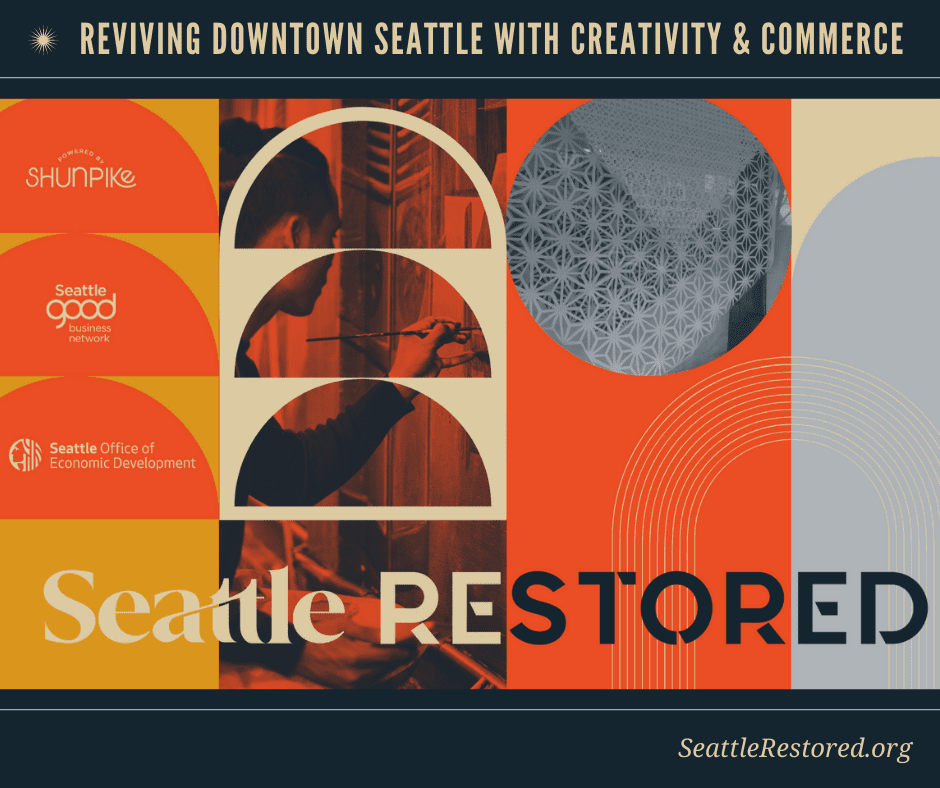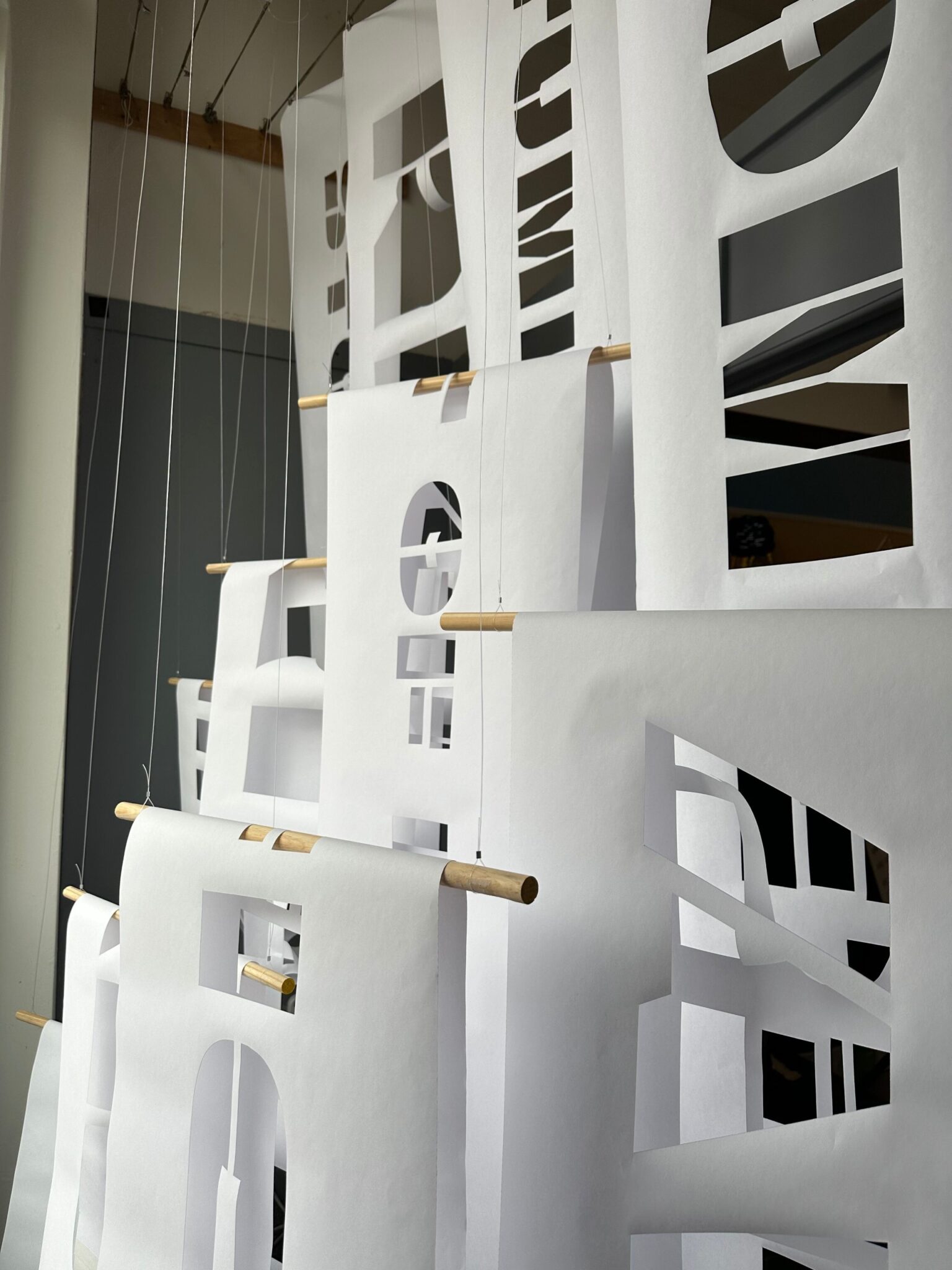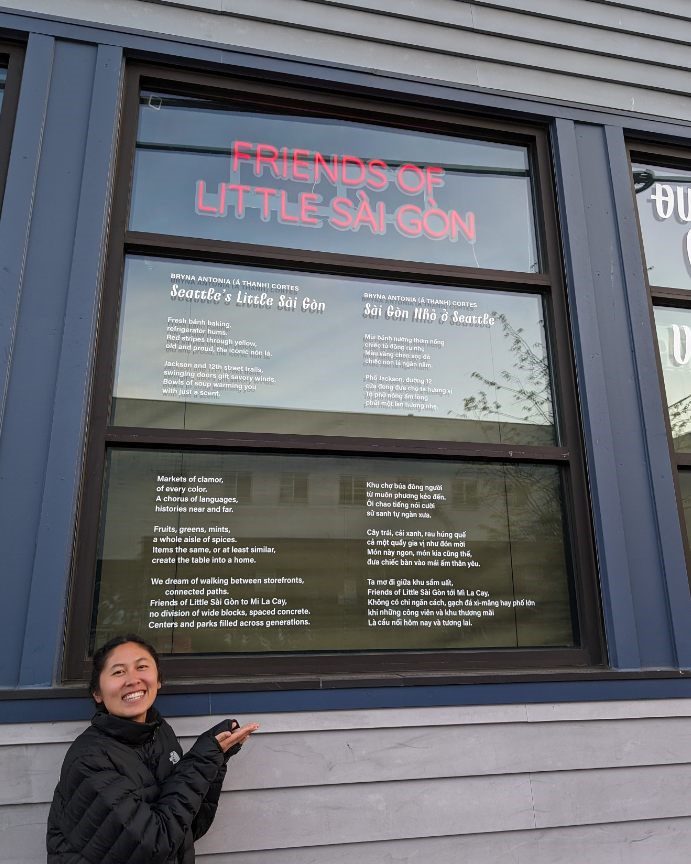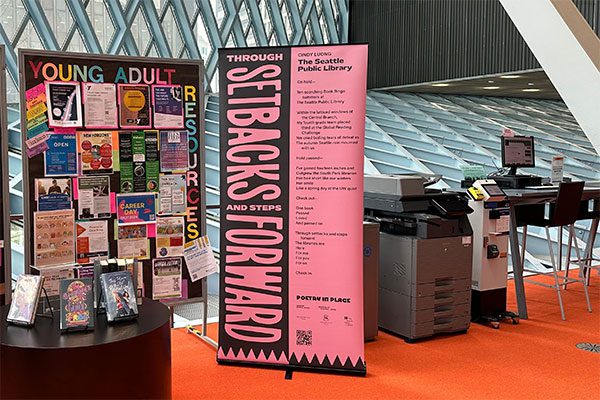
New economic recovery program will connect local artists and entrepreneurs with vacant commercial spaces for pop-up shops and art installations

Seattle (December 10, 2021) — The City of Seattle Office of Economic Development (OED) and Mayor Jenny A. Durkan announced the launch of Seattle Restored—a new program focused on activating vacant commercial storefronts in Downtown Seattle neighborhoods such as Westlake, Belltown, Pioneer Square, and Chinatown-International District (CID). OED is partnering with Seattle Good Business Network, Shunpike , and real estate broker Susanna Tran to match vacant downtown Seattle storefronts with small business owners and artists to facilitate pop-up shops and art installations—prioritizing Black, Indigenous, and other entrepreneurs and artists of color. Activating storefront vacancies will economically, socially, and culturally benefit neighborhoods, small businesses, artists, and property owners by creating vibrant and engaging streetscapes that encourage the public to visit downtown, support local businesses, and support local artists. This program is funded by the Coronavirus Local Fiscal Recovery Fund (CLFR) established under the American Rescue Plan.
“Downtown is Seattle’s economic engine, and it’s up to us to help it build back better than ever for all those who live, work, or visit. As part of our effort to revitalize downtown, we’re making it easier than ever to pursue new, innovative uses for storefronts, like art installations or museums,” said Mayor Durkan. “Earlier this year, we passed legislation to increase flexible uses for downtown vacant storefronts, and now, Seattle Restored will make direct investments in activating dozens of vacant storefronts. I appreciate OED, and their partners for working to help downtown small businesses, workers, and arts and cultural organizations recover.”
“In conversations with our Downtown Revitalization Working Group earlier this year, it became clear that there was a great opportunity and need to bring creative approaches to our empty storefronts as our Downtown neighborhoods begin to recover from the pandemic,” said Pamela Banks, Interim Director of Seattle Office of Economic Development. “Building off their vision, we’ve created something that we can all be proud of and shows the power of bringing community leaders together to tackle our challenges.”
Through Seattle Restored, OED and its partners will support at least 25 space activations from December 2021 through April 2022, providing flexible short-term activations that run for two to four months each. There is no cost to participate, and the program will provide $2,500 in working capital to each participating small business and artist. Additionally, participants will be offered a range of complementary supports including commercial space development, marketing strategy development and execution, technical assistance (e.g., product inventory management, customer development strategies in new markets), and connecting businesses to additional working capital. Through Seattle Restored, property owners will build relationships with new tenants, while small businesses and artists will have the ability to stabilize in pop-up spaces in prime commercial locations, explore new opportunities in the downtown market, and connect to technical assistance for their long-term recovery and growth. OED will also work to identify permanent locations and offer technical assistance to support participants’ ability to transition from short-term pop-up spaces to a long-term lease.
“Seattle RESTORED builds on Shunpike’s nationally acclaimed Storefronts program – a public art exhibition and pop-up program that came about in the wake of the 2008 economic downturn. Now as then, through the collaboration of our city’s neighborhood associations, property owners, artists, and creative entrepreneurs, this project will help restore the beauty and vibrancy of Seattle’s downtown neighborhoods, while also nurturing our local economy,” said Line Sandsmark, Shunpike Executive Director.
“Seattle Made—a program of Seattle Good Business Network—is a collaboration of hundreds of urban manufacturers and producers—makers of everything from chai to candles, bicycles to beer, and jewelry to jam—coming together to ‘make it’ in Seattle. The Seattle Restored program is particularly significant for this community of makers as 70% of them are women or Black, Indigenous, and People of Color (BIPOC)-owned, and other interested small business owners and artists who could benefit from the opportunities this program will provide,” said Andrea Porter, Seattle Made and Seattle Restored Program Manager. “Seattle Restored will also offer the public the perfect opportunity to visit our downtown neighborhoods while supporting local artists, makers, and small businesses. These individuals strengthen our local economy and our communities, provide meaningful living wage jobs, and contribute so much to Seattle’s independent and innovative culture.”
“Downtown is the small business, arts, and cultural heartbeat of our city. It is no secret that COVID has hit small local businesses, artisans, and artists downtown particularly hard as we’ve seen dramatic shifts and changes in how and where people work and recreate. As the pandemic eases and we look to attract more workers and visitors back to our urban core, the renewal of downtown is providing an opportunity to rethink the downtown experience and create a sense of place where everyone can see themselves.” said Kylie Rolf, VP of Advocacy and Economic Development for the Downton Seattle Association. “Great urban areas are vibrant, with a mix of cultures and perspectives all in one place. Active storefronts with a diverse range of uses will allow more people to bring their ideas, expertise and perspective to the heart of our city. Innovative, supportive programs like Seattle Restored are critical to enriching the fabric of downtown.”
The city and partners have begun direct outreach to property owners and hosted an information session for interested property owners on December 7. The city will also partner with the Office of Arts & Culture (ARTS) to conduct outreach to artists and small businesses within the creative economy. On December 14, a separate information session will be hosted for small business owners and artists that are interested in establishing art exhibits and pop-up shops in available vacant storefronts. Interested business owners and artists can sign up to participate in the December 14 information session using the following link: bit.ly/artpopup_infosession. Seattle Restored will begin accepting applications from property owners, small business owners, and artists on December 10, and will continue accepting applications until 25 space activations are secured. To apply, visit the following links:
· Seattle Restored Property Owner Application: Bit.ly/seattlerestored_landlord
· Seattle Restored Art Exhibits & Pop-Up Shops Application: bit.ly/seattlerestored_popup_artist
For accommodations, accessibility information or language access support, please contact the Seattle Office of Economic Development at 206-684-8090 or oed@seattle.gov.
For property owner selection, priority will be given to vacant commercial spaces that do not require a change of use permits. This will allow small businesses and artists to modify and set up commercial spaces within three weeks before opening to the public. However, if needed, the city is committed to working with property owners and selected artists/small businesses to expedite permit processes required to modify the use of space.
“As artists and cultural practitioners who have lived and worked in the neighborhood, this space is a way for us to give back, plant some creative seeds for the future, and support the continued growth of the neighborhood, one that many communities find and call home.” said Monyee Chau, member of Blossom CID—a collective of artists and cultural workers. “We are wanting to facilitate an arts space and the Seattle Restored program would allow us to do just that!”
Many neighborhoods—particularly downtown—experienced business closures and commercial space vacancies due to the pandemic. As of June 2021, the number of small businesses open in the Seattle metropolitan area was 38 percent lower than in January 2020, just prior to the initial economic impacts of the COVID-19 pandemic. Small business revenue was down 35 percent. Additionally, national data indicates that BIPOC businesses were hit the hardest by closures. According to a study by the National Bureau of Economic Research, COVID-19 caused BIPOC owned businesses to close at a much higher rate than the average with Black-owned businesses losing 41% of their businesses, Latinx owned businesses losing 32% of their businesses, and immigrant-owned businesses losing 36% of their businesses. These closure rates exceeded the average loss of 22% for all businesses. Each business closure caused by the pandemic represents a significant and permanent loss of wealth for BIPOC business owners who invest personal savings, pledge personal assets, and rely on business revenue for their income. At the height of the pandemic, more than 62% of artistic and creative workers reported becoming fully unemployed, with 95% reporting experiencing significant income loss.
Seattle Restored aims to mitigate against these harms and support small businesses and artists with technical assistance to open pop-up activations in downtown vacant storefronts, regain their financial health and gain exposure to new customers. This program will especially benefit BIPOC, and woman-owned businesses that have had disproportionate financial losses due to the pandemic, loss of foot traffic, consumer behavior changes, shift to an e-commerce dominated economy and public health mandated measures.
“The pandemic has taken a toll on the CID – as I know it has for everyone. As a leading community development organization in the CID, we understand the importance of activating storefronts on Jackson St. We are very excited about this innovative venture. We believe it is our role to be able to support small businesses and artists as we emerge from the pandemic, and we are fortunate to be in the position to do so” said Jamie Lee, Director of Community Initiatives at Seattle Chinatown International District Preservation and Development Authority.
OED continues to invest in economic recovery supports for small businesses, workers, and neighborhoods. In addition to Seattle Restored, OED invested more than $6 million in neighborhood recovery grants, $4 million in stabilization grants for small businesses, announced a $2 million expansion to the Small Business Stabilization Fund to support small businesses and non-profits required to enforce vaccination verification in King County, and launched Shop to the Beat—a recovery program that matches local musicians with small retail businesses to provide in-store performances during peak business hours, help increase foot traffic and sales for retailers, and provide competitive pay for musicians who lost significant income due to the impacts of COVID-19.


